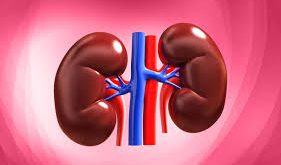Psoriasis is one of the most common skin disorders that affects both adults and children. The condition can cause your skin cells to form silvery, rough red patches with white scales which can be itchy and can vary in size. It commonly affects the joints, scalp, and lower back. The occurrence of psoriasis is quite common during winters as the cold winds, low humidity, wet weather and less sunlight can drain the moisture out of our skin and make it dry and itchy.
Recent reports highlight that the disease affects approximately 2-4% of the population resulting in more than 10 million cases in India every year. The disease affects men more than women and can occur across all age groups. Due to certain stigmas, psoriasis is often misunderstood and patients tend to hide the disease by wearing long sleeve clothes, high collars and long pants to hide their skin lesions.
What are the signs and symptoms of psoriasis and how can you manage it?
The signs and symptoms of psoriasis include –
Red patches on the skin surface
Soreness, burning and itching
Large scaling spots
Dry cracked skin that bleeds
Thickened, pitted or ridged nails
Swollen and stiff joints
People suffering from psoriasis can make use of emollients that can help hydrate their skin by forming a greasy layer over the skin surface, which can prevent water loss and retain moisture in the skin. The most commonly used emollients are white soft paraffin and liquid paraffin that can be applied immediately after the bath and between the treatment periods regularly for the best effect.
Additionally, people can use these winter psoriasis treatment strategies to prevent themselves.
Use a moisturising soap while bathing
Apply fragrance-free products to avoid allergic reactions
Take short warm baths instead of long showers in hot water
Use a humidifier while staying indoors to keep the air moist and prevent dryness
Drink plenty of water to keep your skin hydrated
Wear a layer of cotton clothes or multiple cotton clothes to prevent irritation and flare-ups caused by fabrics
Use a scarf/hat along with gloves to protect the exposed areas of the skin while stepping out
Natural sunlight can help reduce the symptoms of psoriasis. Salt water dips and sun bathing have long been known to help reduce the symptoms of psoriasis. This is also called balneotherapy. The use of simple Vitamin D based creams, coal tar shampoos can help reduce the severity of the disease. The more severe disease would require a more aggressive approach, always keeping in mind to treat the patient, not the disease.
Authored by Dr. Shireen Furtado, Consultant – Medical & Cosmetic Dermatology, Aster CMI Hospital, Bangalore
 Newspatrolling.com News cum Content Syndication Portal Online
Newspatrolling.com News cum Content Syndication Portal Online







